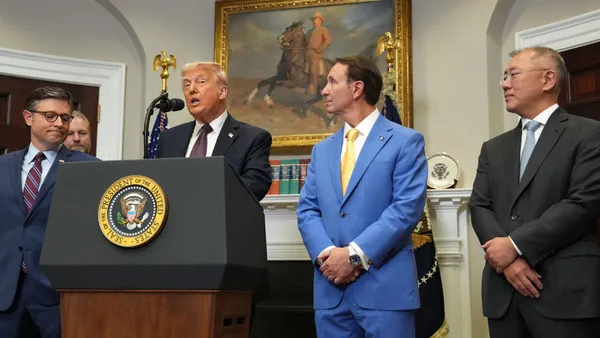Dive Brief:
- The U.S Department of Veterans Affairs is asking Congress to approve its plan to move forward on approximately $1.4 billion worth of stalled construction projects, according to Engineering News-Record.
- There are 11 VA projects currently delayed because of differences in how the VA and the Army Corps of Engineers fund construction projects. The Army Corps oversees construction and design on VA projects.
- Federal lawmakers put the Army Corps in charge of VA construction projects costing $100 million or more after four years of schedule delays and almost $1 billion in cost overruns at the VA hospital project in Aurora, CO.
Dive Insight:
In October 2016, the VA announced that it was 78% complete with the Aurora hospital and that the facility would open sometimes in 2018. The Army Corps stepped in — under a $571 million contract — as construction manager in November 2015 after Congress put the VA on a short leash as it pertains to running large construction projects. The Army Corps retained contractor Kiewit-Turner, the general contractor on the project.
In addition to construction costs, the VA will have to spend roughly $340 million for furniture and equipment, which pushes total the total price tag for the hospital past the $2 billion mark.
Congress initiated an investigation into the VA management structure to determine the source of the project's problems. It found that three VA employees, who are no longer with the agency, were to blame and that current staff had little to do with the Aurora debacle. Critics of that finding said that the VA's investigation was an example of how the agency continues to shirk responsibility.
Dr. David Shulkin, the U.S. Secretary of Veterans Affairs, has said the department is also trying to find a path forward in dealing with 400 vacant and 735 underutilized buildings, all of which cost approximately $25 million to maintain each year. He also said it would take $18 billion to upgrade and repair VA properties and that the department might explore alternative arrangements — like public-private partnerships — to fund that and other work.












